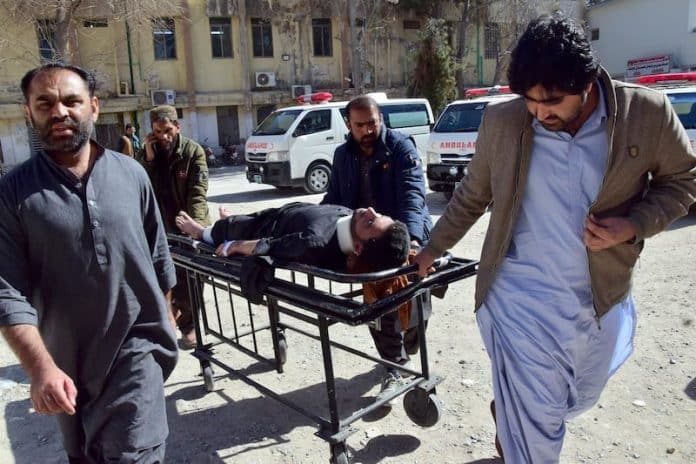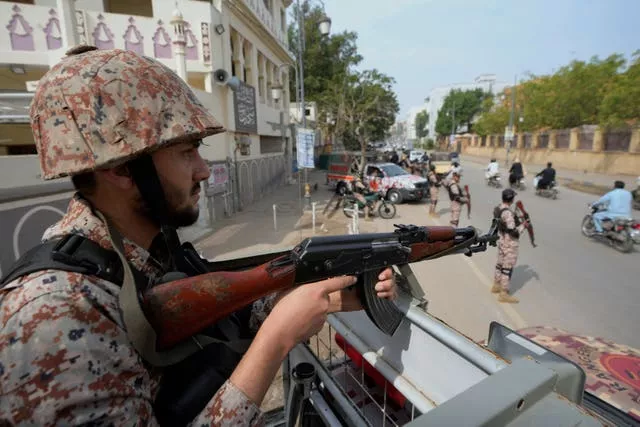The two bombings came despite the deployment of tens of thousands of police across Pakistan following a surge in militant attacks in the country.
Two bombings at the election offices of a political party and an independent candidate in south-west Pakistan have killed at least 29 people and wounded more than two dozen others just days before parliamentary elections are due to be held.
The first attack hit the election office of Asfandyar Khan in Pashin, a district in Baluchistan province, said Jan Achakzai, the spokesperson for the provincial government.
Officials said at least 15 people were killed in the attack and the wounded are being transported to a nearby hospital.
Police said some of them were listed as being in a “critical condition”.
Later on Wednesday, another bombing at the elections office of politician Fazlur Rehman’s Jamiat Ulema Islam party in Qilla Saifullah town in Baluchistan killed at least 11 people, Mr Achakzai and local authorities said.
No-one immediately claimed responsibility for the attacks, which came a day before Pakistan holds parliamentary elections.
Caretaker Prime Minister Anwaarul-Haq-Kakar denounced the bombings in Baluchistan, and conveyed his condolences to the families of those who died.
He vowed that “every attempt to sabotage the law and order situation will be thwarted”.
Mr Kakar said the government is committed to holding elections in a peaceful environment.
Caretaker interior minister Gohar Ejaz also denounced the bombings, saying no-one would be allowed to sabotage the election process.
The bombings come despite the deployment of tens of thousands of police and paramilitary forces across Pakistan to ensure peace following a recent surge in militant attacks in the country, especially in Baluchistan.
The outlawed Baluchistan Liberation Army has been behind multiple attacks on security forces in Baluchistan bordering Afghanistan and Iran.
On January 30, a separatist Baluchistan Liberation Army group attacked security facilities in Baluchistan’s Mach district, killing six people.
In recent years, Pakistan has struggled to rein in surging militancy, especially in the former stronghold of the Pakistan Taliban.
Militants have a presence in Baluchistan and have targeted civilians in recent years.
The gas-rich Baluchistan province at the border of Afghanistan and Iran has been the scene of a low-level insurgency by Baluch nationalists for more than two decades.
Baluch nationalists initially wanted a share of the provincial resources, but later they initiated an insurgency for independence.
Pakistani Taliban and other militant groups also have a strong presence in the province.
Caretaker Prime Minister Anwaarul-Haq-Kakar denounced the bombings and conveyed his condolences to the families of those who died.
He vowed that “every attempt to sabotage the law and order situation will be thwarted” and said the government is committed to holding elections on Thursday in peace.
Mr Achakzai announced a three-day mourning period but added that “the elections will take place on Thursday as per the schedule, and we urge people to exercise their right to vote to defeat those who wanted a delay in the elections”.
In 2007, Pakistan’s two-time prime minister, Benazir Bhutto, was killed in a gun and bomb attack minutes after she addressed an election rally in the garrison city of Rawalpindi.
Her son, Bilawal Bhutto-Zardari, has led the campaign for her Pakistan People’s Party amid tight security.














